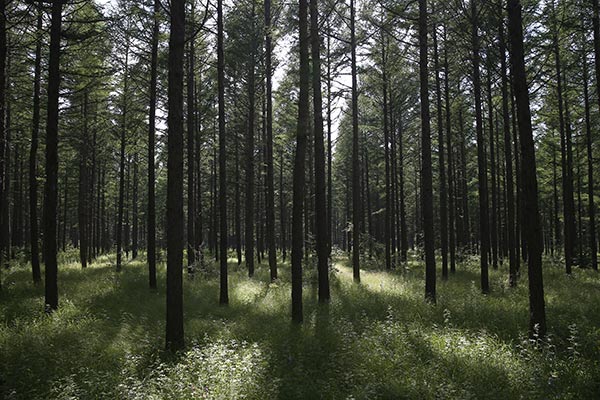 |
|
Sunlight pours into the forest at Saihanba. [Photo by Zou Hong/China Daily]
|
Later Saihanba experienced its heyday during the Qing Dynasty (1644-1911), China's last feudal dynasty. The founders were Manchu people, one of the two ethnic minority groups that have ruled the whole of China. Also a horseback people, the Manchu picked up their Liao predecessors' hunting practice and turned the place into the world's largest royal hunting ground.
Enclosure hunting was carried out: soldiers wearing deer horns sneaked into the forest before starting to blow whistles made of birch bark. The sound resembles that of a female deer, enough attraction for the male deer and the animals who preyed on them.
That lasted for another century and a half, until the fortunes of the empire began to wane, in the early 19th century. Western powers were pounding on the door of the Middle Kingdom, which meant the days for its rulers to pamper themselves in the name of their ancestors were gone. Royal hunting ceased in 1820, and in 1860 the hunting ground was opened to the public. Farmers and herders moved in, grass was grazed and trees felled. Over the coming decades the land was reduced to a shadow of its former self, and as its beauty vanished, Saihanba became the land people forgot.


























 Raymond Zhou:
Raymond Zhou: Pauline D Loh:
Pauline D Loh: Hot Pot
Hot Pot Eco China
Eco China China Dream
China Dream China Face
China Face






